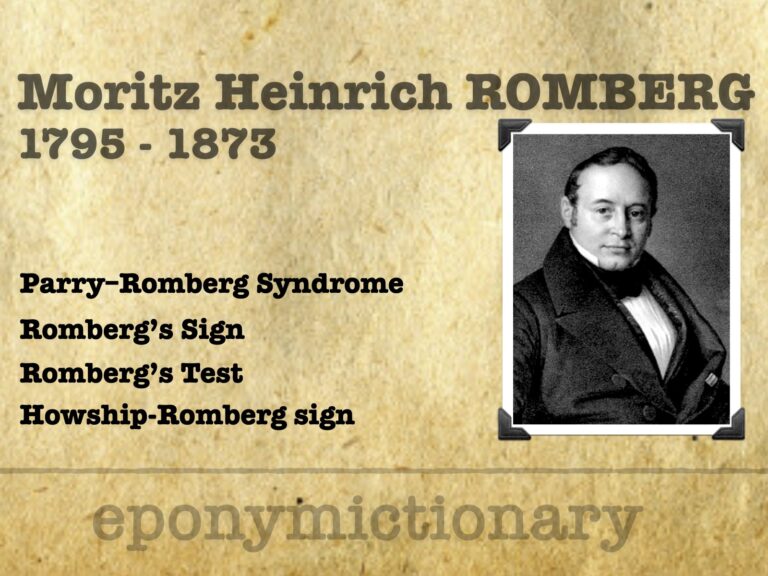
Moritz Romberg
Moritz Heinrich Romberg (1795–1873) a founder of clinical neurology, Romberg’s sign, Parry–Romberg syndrome and Howship–Romberg sign

Moritz Heinrich Romberg (1795–1873) a founder of clinical neurology, Romberg’s sign, Parry–Romberg syndrome and Howship–Romberg sign
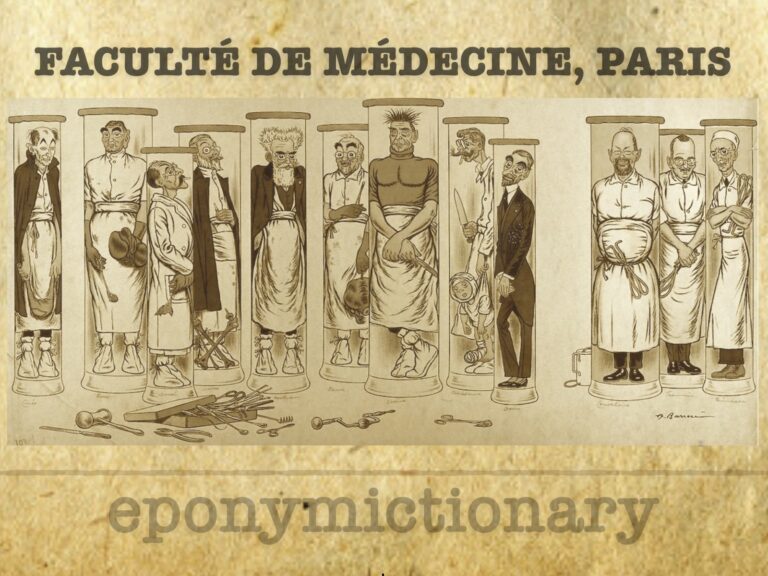
Adrien Barrère (1874-1931) produced a series of lithographs of the Professors in the Faculties of Medicine. Fourth lithograph 'A cluster of surgeons' in 1910
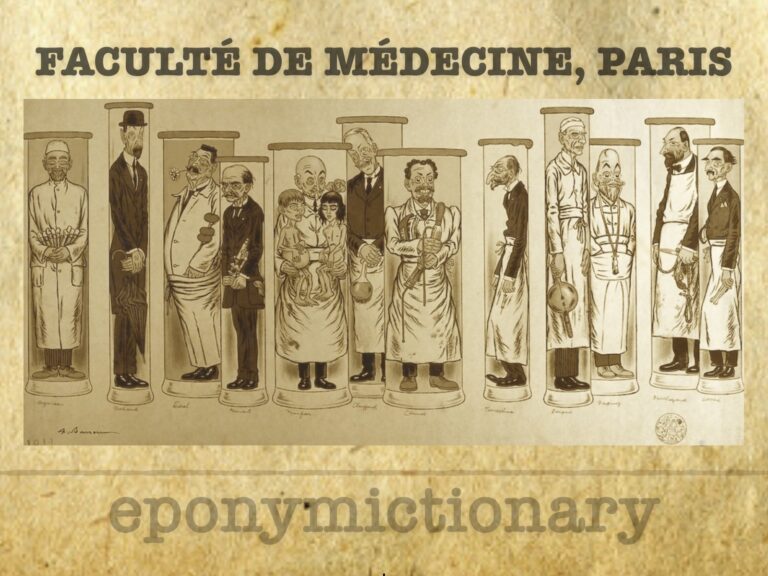
Adrien Barrère (1874-1931) produced a series of lithographs of the Professors in the Faculties of Medicine. Third lithograph 'Twelve Professors of Pathology' in 1910
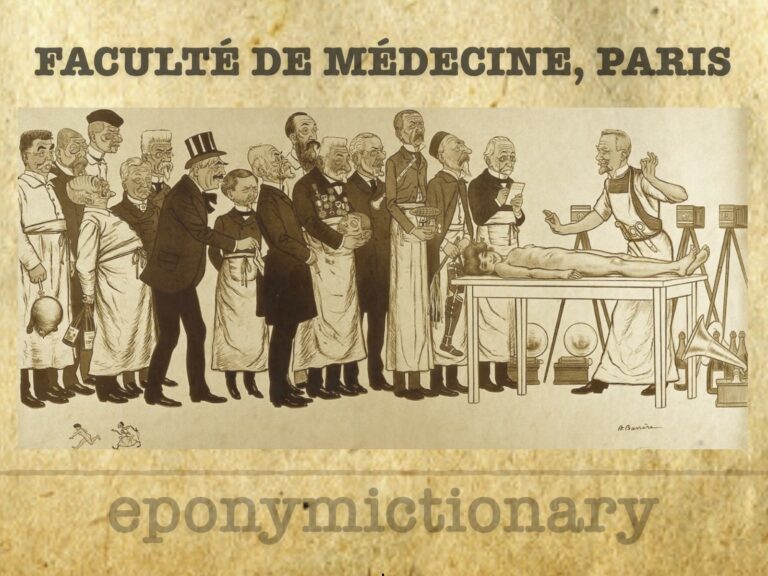
Adrien Barrère (1874-1931) produced a series of lithographs of the Professors in the Faculties of Medicine. Second lithograph '16 French doctors' in 1906
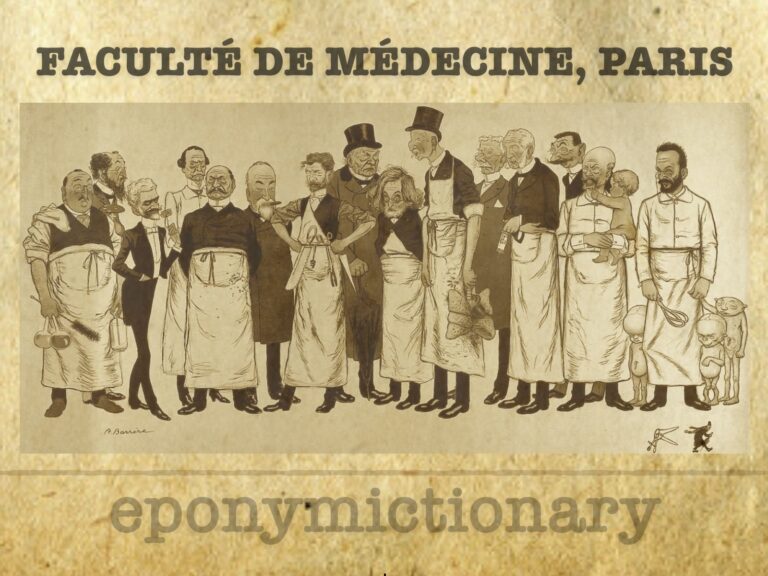
Adrien Barrère (1874-1931) produced a series of lithographs of the Professors in the Faculties of Medicine. First lithograph 'a vivid grouping' in 1903
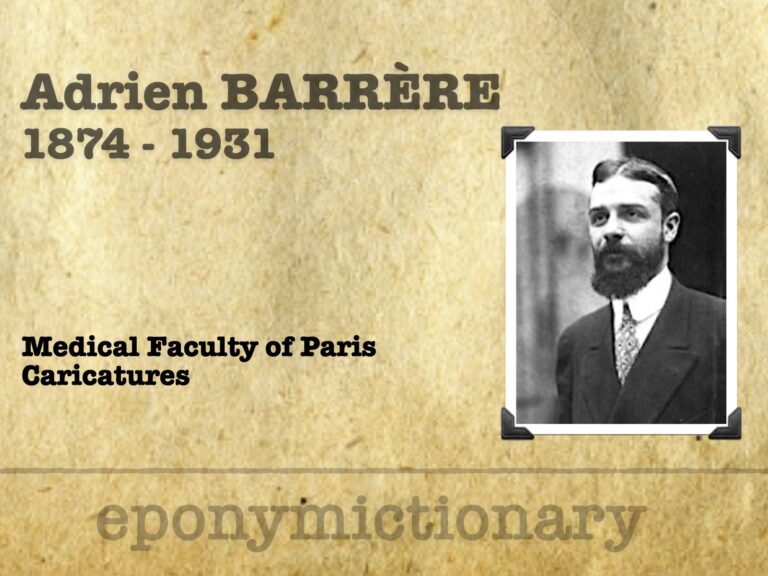
Adrien Barrère (Adrien Baneux) (1874-1931) was a French medical caricaturist, poster artist and painter in Paris during the Belle Époque

August Gottlieb Richter (1742–1812), German surgeon; Richter’s hernia, advanced cataract extraction, and elevated surgery into academia
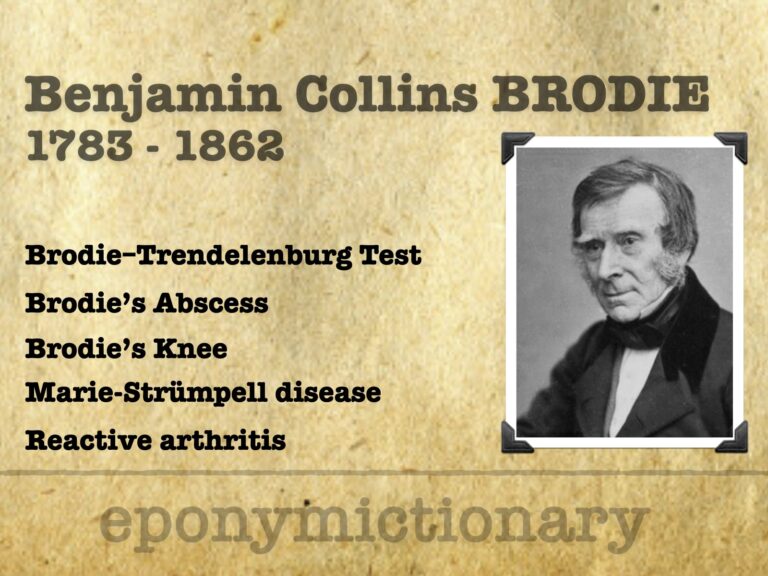
Sir Benjamin Brodie (1783–1862), English surgeon; pioneer in joint disease, Brodie’s abscess, medical ethics, and surgical education reform.
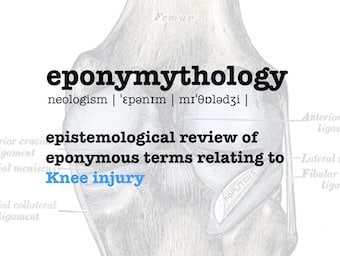
Eponymythology of the signs, symptoms, investigation and management of knee injuries. Related eponyms, the person behind their origin, their relevance today, and modern terminology
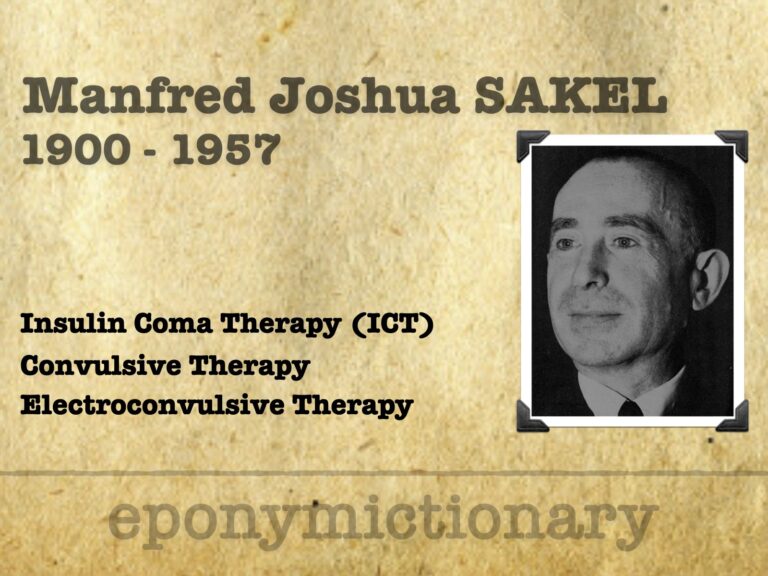
Manfred J. Sakel (1900–1957), Austrian neuropsychiatrist, pioneered insulin coma therapy—an early somatic treatment for schizophrenia, now obsolete
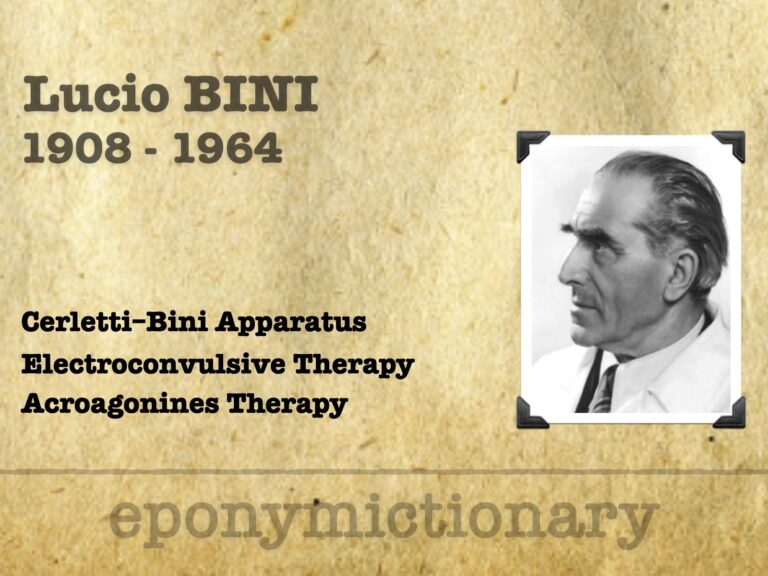
Ugo Cerletti (1877–1963), Italian neuropsychiatrist, pioneered ECT with Lucio Bini in 1938, reshaping psychiatric care and inspiring early biological psychiatry.
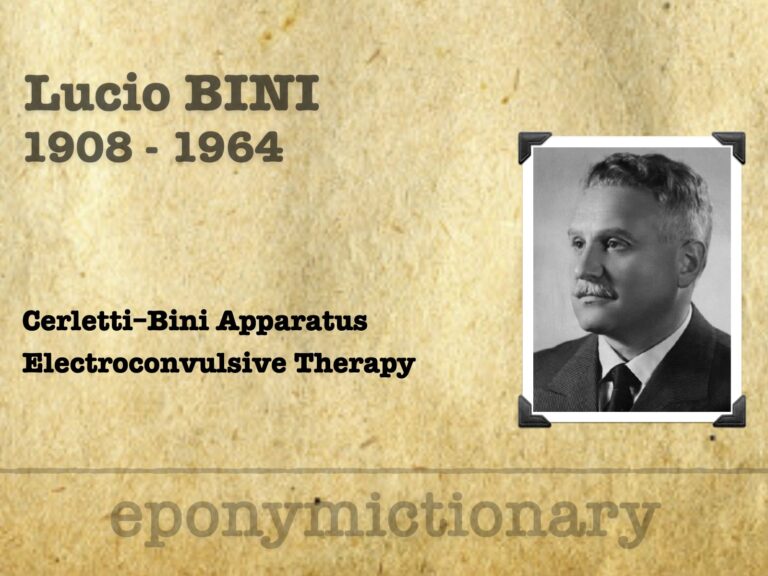
Lucio Bini (1908–1964), co-inventor of electroconvulsive therapy, pioneered psychiatric innovation but faced marginalization in later years.